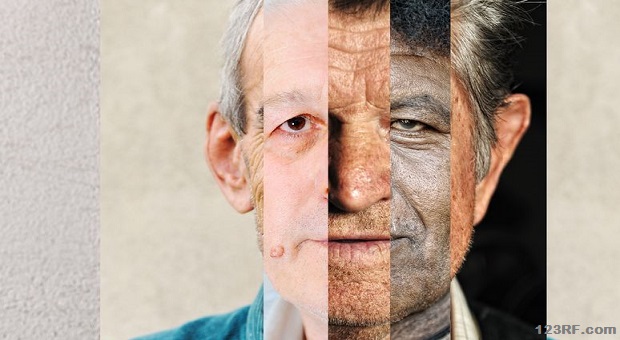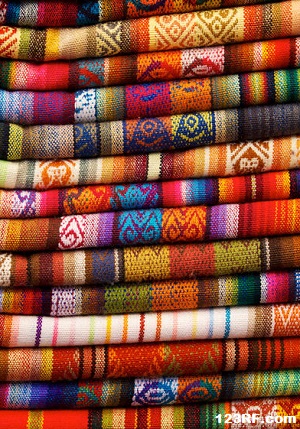 When it comes to surviving a social collapse, there is a natural instinct to wonder how people got along without all the things we are accustomed to in our world. For example, how did people wash clothes, cook food, treat diseases, or heat their homes without electricity and modern electronic gadgets?
When it comes to surviving a social collapse, there is a natural instinct to wonder how people got along without all the things we are accustomed to in our world. For example, how did people wash clothes, cook food, treat diseases, or heat their homes without electricity and modern electronic gadgets?
Today, there are many native, or indigenous people around the world that still have no need of electricity or any of the other conveniences we have grown accustomed to. If you want to adapt ancient or indigenous ways to fit a crisis situation, you should also consider what it takes to preserve those cultures so that things you may have overlooked are not lost.
Ancient Cultures and Ways are Not Dead
{adinserter emp}From the Americas to Africa and Australia, there are thousands of unique nations with customs designed to help the people live and prosper in accordance with their values.
While many of these people have been disenfranchised by so-called superior technology, the people themselves still have thoughts, feelings, and customs that we may need to learn. This includes customs for negotiating with people from other cultures, as well as insights about human nature that will help us all form healthier societies in the future.
Needless to say, indigenous medicines and survival technologies can also be of immense benefit to anyone looking for tips on how to survive in specific outdoor environments. Without a question, you may read dozens of books, and even camp in complex terrains for a few weeks, but that does not mean you can survive for years as the native people do.
There is Something to Learn From all People
 As a professional writer with clients from around the world, I am often amazed at how many people start off by telling the other person what they think they know about the other person’s culture, and even personal values. Unfortunately, this situation is even worse when people first encounter indigenous citizens.
As a professional writer with clients from around the world, I am often amazed at how many people start off by telling the other person what they think they know about the other person’s culture, and even personal values. Unfortunately, this situation is even worse when people first encounter indigenous citizens.
I often find myself sickened by the number of people that spout on about customs and traditions they have never taken part in, but have read about in a book somewhere, or heard a lecture on. While every person has something to offer in the way of learning, make it a point to ask for direct experience and information from the originators of that information. You will get a different perspective, and far more insights than you would expect.
Respect for Other Cultures and Your Own
Quite frankly, in today’s world, it is very hard to have and command respect when our leaders are up to their eyeballs in scandals; yet instead of impeaching, and standing behind new political parties; we elect the same old leaders, and then wonder why we are still in a mess.
Nevertheless, we as citizens of this country still need to have respect for ourselves and the things that are important. Without that inner sense of self worth, it becomes difficult, if not impossible to see the value of other cultures and find meaningful ways to interact with them.
Perhaps it can be said that a culture or people that hate themselves are the first ones to attack others in order to spread their own misery. So it is in the anti-gun movement, and so it is when one culture feels it must dominate another.
Preventing History from Repeating Itself
Have you ever heard stories from “old timers” that can recite entire family trees (and their associated rivalries), how things were done when they were children, and all sorts of other fascinating information? If so, then you would be amazed at how much valuable information we throw away on a daily basis when we toss these old timers into nursing homes or isolate them in ways that you will not find done in other cultures.
When it comes to avoiding the problems that cause any given social collapse, there is nothing like the perspective of historical experience to help you understand and come up with better ideas for the future. Today, if you truly have an interest in survival and prepping, take some time and talk to an elderly person. You will remember their stories, and the information will always give you much to think about.
There is no question that books, movies, and lectures have a immense value when it comes to learning how to achieve one goal or another. Sadly, when it comes to preserving cultural values and getting past social collapse, what you learned from biased, non-direct sources of information are the worst things to rely on. In a similar way, when it comes to preserving what you think are indigenous cultures and methods of survival:
- Talk face to face with individuals from the culture in question, and make sure they are authorized by their community to talk/teach about these things
- Make sure that you understand how this culture is similar or different from others that are found in the same region and beyond
- Do not use icons, symbols, or other culturally recognizable items unless you have permission to do so from the origin culture. I have personally seen everything from commercially used tribal tattoos and other art that were actually serious insults, or things that people from the origin culture would never wear or say. When you use these things without direct knowledge, you only become an embarrassment to yourself, and set yourself up for negative interactions with people that have more direct information than you do.
Over the last few decades, millions of women have purchased “stunning” jewelry depicting the beautiful Egyptian queen, Nefertiti. Just a few years ago, the statue these items were based on was exposed as a hoax. This is just one example of how second hand information can mislead you about the true nature and ways of people from other cultures.
In a survival situation, being misled can cause all kinds of problems that will make rebuilding even harder. While learning directly about other cultures may not seem important, it is truly a critical tool for your survival kit.
This article has been written by Carmela Tyrell for Survivopedia.





















































































you are so right. I’m not as capable as others might be because I’m 70 now, and I don’t climb and I don’t run but I know how to make soap from ashes, kill and clean chicken and remove the feathers, plant a garden, can food, use some medicinal plants, gather berries and know which are edible and which are not, and I know stuff that I don’t even know I know and most of it is from watching my grandmother. And boy can I cook. So don’t forget your old people men or women.
Jane, I’m catching up on you at 64. Like you, I can’t do many things but I am teaching and writing what I have experienced and learned from others in the hopes that even if I don’t survive, the skills might. I’m not good at medicinal yet, but working on it. I’m just hoping when the grid goes down, people will remember the wise ones are those who have lived through tuff times and can share them as the author has said.
Great topic Camilla and everyone has brought up some great points. There is so much to learn from both our own elders and from other cultures. Cultural anthropology also has a lot to teach people interested in self-reliance.